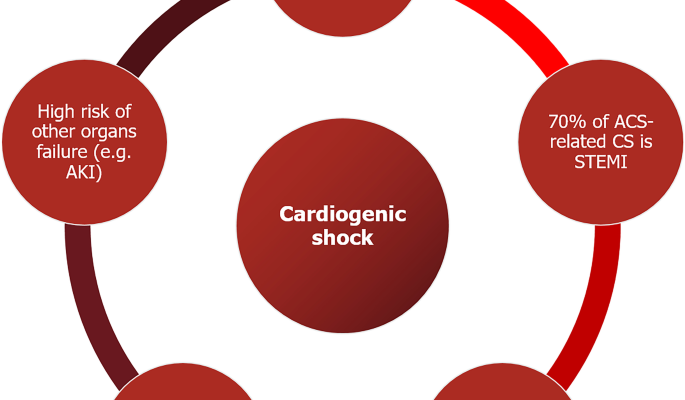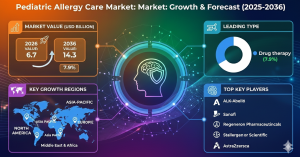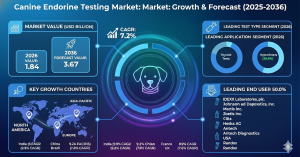According to Fact.MR, a market research and competitive intelligence provider, the cardiogenic shock market is set to see strong expansion, expecting an incline of 6.2% CAGR across the 2022-2032 assessment period. As per the report, the market is poised to be valued at US$ 6.32 Bn by the end of 2032.
Heart illnesses are the main cause of mortality and disability in present times. Even with the understanding of scientific situations, it is nonetheless crucial to elevate diagnosis and control the symptoms and signs. Cardiogenic shock is a life-threatening condition characterized by hemodynamic instability that necessitates rapid resuscitation before it damages important organs and results in organ failure.
According to WHO, nearly 17.9 million humans died from cardiovascular infections (CVDs), which accounted for nearly 32% of global deaths. Of these, nearly 85% were because of stroke and heart attack. Over 3/4 of CVD deaths took place in low-profit nations. Out of the 17 million premature deaths (under 70 years of age) because of non-communicable infections in 2019, 38% were caused by CVDs.
The healthcare sector has been involving itself in advanced technologies that involve optimization of the devices used for cardiovascular devices, clinical innovations, bringing in minimally-invasive treatments, and evolvement in clinical diagnostics and management in treating high-risk patients. Demand for related treatment is increasing as people are now being educated about the right treatment options, doctor-guided plans, and precautionary measures to consider for serious clinical conditions.
Key players in the cardiogenic shock market are actively searching to gain approval from regulatory bodies and develop products across the continuum of care in heart recovery. Furthermore, the FDA is expected to approve new devices related to cardiac disorders to improve cardiogenic shock treatment over the coming years.
- For instance, in January 2022, Abbott got U.S. FDA clearance for CardioMEMS, to support patients battling earlier-stage heart failure.
Increased product adoption rate can also prove as a beneficial factor for the manufacturers of these medical devices to expand across markets.
Key Takeaways from Market Study
- By treatment type, drugs held the largest share of 52.7% in the global market in 2021, with the segment expected to expand at 7.8% CAGR over the forecast duration.
- By end user, the hospitals segment was valued at US$ 1.33 Bn in 2021.
- North America held the largest share of 36.1% in the global cardiogenic shock treatment market in 2021.
“Increasing incidence of cardiac disorders and device innovation are prompting healthcare providers to incorporate new treatment regimens for cardiogenic shock,” says a Fact.MR analyst.
Competitive Landscape
Product launches and actively collaborating with suppliers that have a strong position and are popular in the market is one of the key strategies of many market players.
- In October 2021, Boehringer Ingelheim and Eli Lilly and Company launched CRMSynced™, an educational program that uses gamification to allow healthcare professionals take a holistic approach to care for cardio-renal-metabolic conditions.
Key market players such as BenevolentAI and AstraZeneca are focusing on collaboration and expansion for their artificial intelligence (AI)-powered drug discovery partnerships to include disease areas and systemic lupus erythematosus (SLE) and heart failure (HF).
More Market Insights Available
Fact.MR, in its new offering, presents an unbiased analysis of the cardiogenic shock market, presenting historical demand data (2017-2021) and forecast statistics for the period of 2022-2032.
The study divulges essential insights on the market on the basis of treatment type (drugs [inotropic agents, thrombolytic, vasopressors {norepinephrine, epinephrine, vasopressin, phenylephrine, dobutamine}, antiplatelet medication and other blood-thinning medications], devices [mechanical circulatory support (MCS) devices {intravascular micro axial LVAD, intra‐aortic balloon pump (IABP), axial flow pumps, extracorporeal membrane, artery bypass pumps}, invasive ventilation] and in-vitro test kits [N‐Terminal Pro‐B‐Type Natriuretic Peptide (NT‐ProBNP), Troponin I]), and by end user (hospitals, ambulatory surgical centers, cardiac catheterization labs, and office-based clinics), across seven major regions (North America, Latin America, Europe, East Asia, South Asia, Oceania and the Middle East & Africa)
Fact.MR’s Domain Knowledge on Healthcare
Our healthcare consulting team guides organizations at each step of their business strategy by helping you understand how the latest influencers account for operational and strategic transformation in the healthcare sector. Our expertise in recognizing the challenges and trends impacting the global healthcare industry provides indispensable insights and support – encasing a strategic perspective that helps you identify critical issues and devise appropriate solutions.
For more information, refer to our market research report or contact the PR author.



